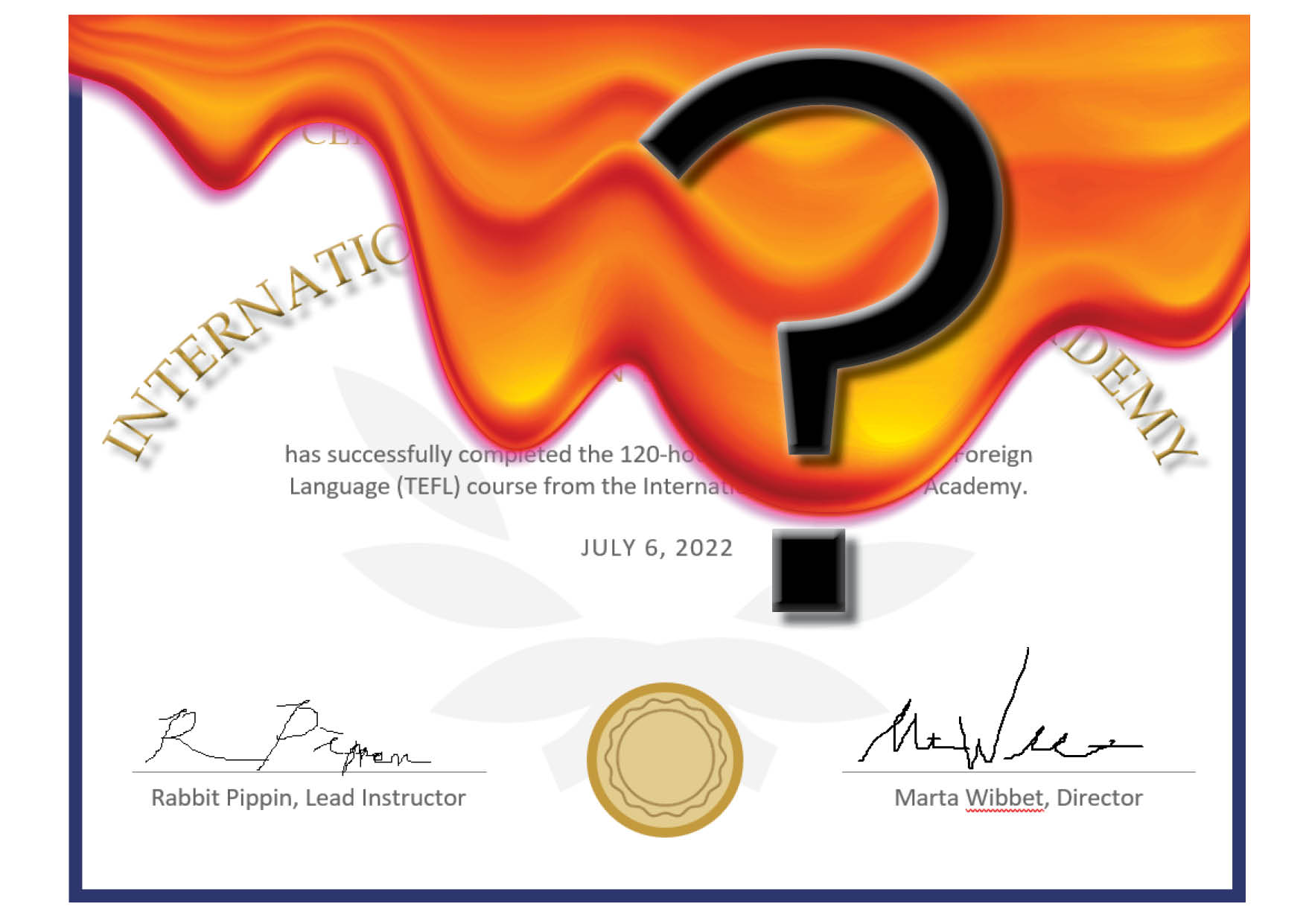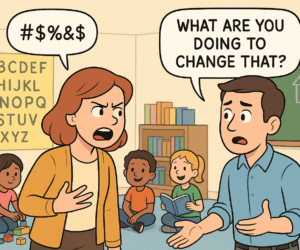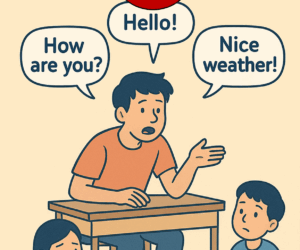The TEFL certificate industry exists to fill a need, but inconsistency, uncertainty, and even outright fraud cause confusion and frustration for teachers and school owners.
TEFL certificates are a problem.
If you are a budding, aspiring English language teacher, do you jump straight into teaching? Or do you first put time and money into earning a TEFL certificate?
If so, which one?
If you are a school owner or principal, do you require teachers at your school to have a TEFL certificate?
If so, which one?
The “which one?” question plagues the TEFL certificate industry. It’s not merely a problem that there are a lot of TEFL certificates to choose from. That would be fine if quality of certificates were generally high, but there are huge gaps in quality among TEFL certificates. The deeper industry problem is that evaluating TEFL certificates is extremely difficult.
One TEFL certificate advertises itself as 120 hours, another as 250 hours. The course syllabi on their websites look remarkably similar. Does one course dig deeper into the topics? Is there a difference?
Two TEFL certificates look similar on the surface. One costs $120 dollars, another $1200 dollars. Is one underpriced or the other overpriced? Is there a difference?
One TEFL certificate advertises accreditation, while another makes no mention. Is there a difference?
A frustrating challenge of choosing a TEFL certificate is that the 120-hour certificate could actually be longer and more rigorous than the 250-hour certificate…. It is also likely that the longer, more expensive, accredited course is, in fact, better.
A frustrating challenge of choosing a TEFL certificate is that the 120-hour certificate could actually be longer and more rigorous than the 250-hour certificate. The unaccredited certificate could actually be better than the one advertising accreditation. As for price? It seems unlikely that a TEFL certificate provider could give a TEFL student an instructor’s attention for more than three or four hours at a price of $120, but the $1200 price is also no guarantee of quality. The actual value of a TEFL certificate? Anyone’s guess.
In the TEFL certificate world, it is entirely possible that the shorter, cheaper, unaccredited certificate is more rigorous than the longer, more expensive course claiming accreditation. It is also likely that the longer, more expensive, accredited course is, in fact, better. Or they could both be complete frauds. Or they could both be marginally O.K.
Taking each and every TEFL course to compare would answer the question, but no one needs (or can afford) to be TEFL-certified hundreds of times over. There is no convenient organization, such as U.S. News & World Report with American universities, ranking of TEFL certificates to tell us what the most prestigious, respected, quality programs are (fraught as rankings schemes are with their own problems). The TEFL industry has one or two known and respected names and labels. Beyond that, we have mainly the Google search results, which put some TEFL providers on the first page of results and all the others after that for reasons only the algorithm understands.
The Leadership Team at MY English School recently ploughed into this convoluted TEFL certificate puzzle. No, we didn’t take each and every course so that you wouldn’t have to and rank them. No, we haven’t even reviewed the majority of the courses you might find on the first page of your internet search results. What we have done is try to understand the field better so that, moving forward, we can make better decisions for our teachers and for our school.
Check back this week and next week on Wednesdays and Fridays. I will explore why MY chooses to require a TEFL certificate, three bright spots we found in the TEFL industry (and a lot of red flags to watch for), and how MY is handling TEFL certification going forward. Whether you are a teacher considering a TEFL certificate or a school owner weighing a TEFL certificate requirement, maybe some part of our experience will help you.
Part 1: The TEFL Problem
Part 2: Why TEFL?
Part 3: Three Bright Spots in the TEFL Industry (and a lot of red flags to watch for)
Part 4: Moving forward on MY’s TEFL certificate requirements









